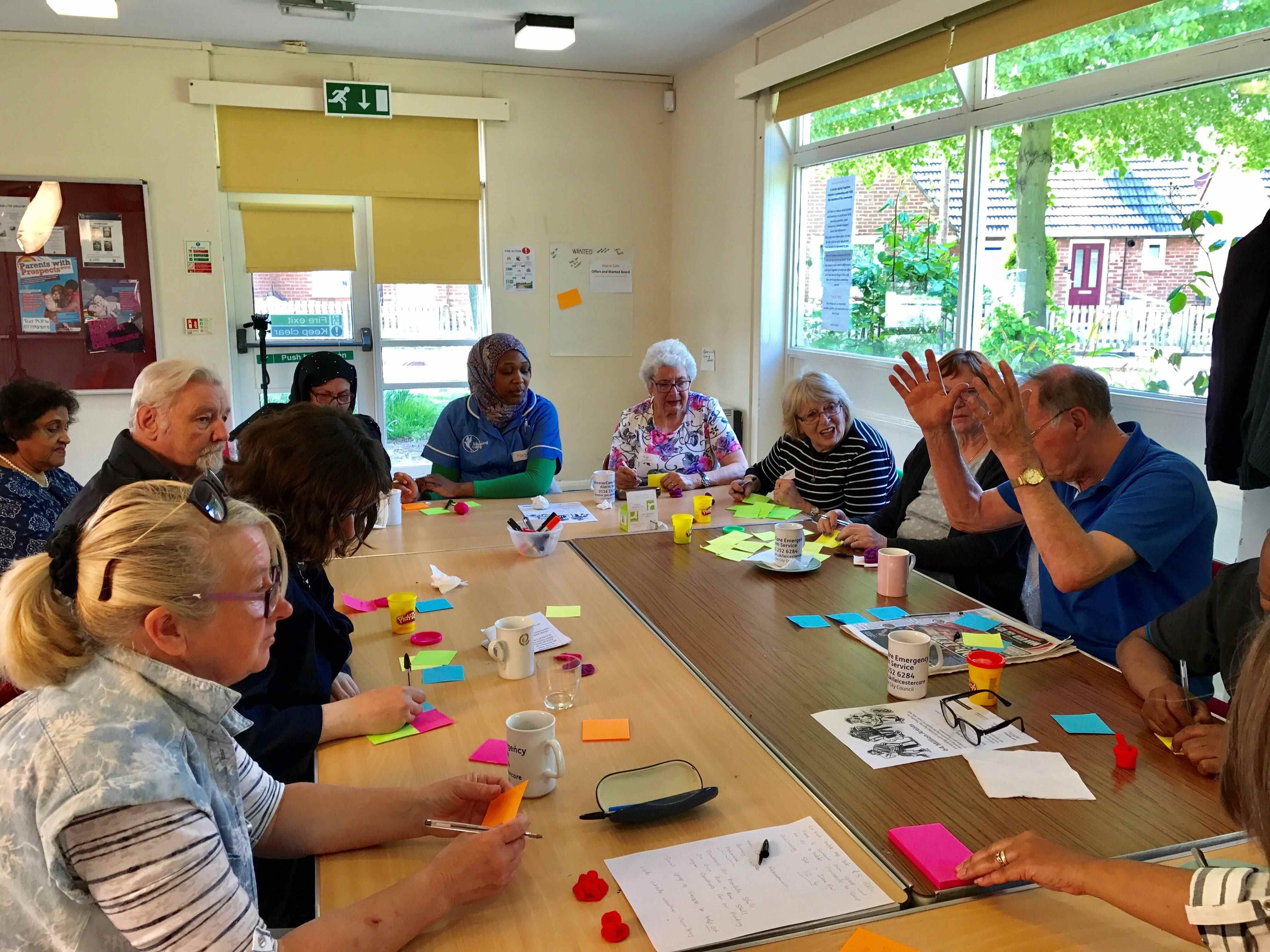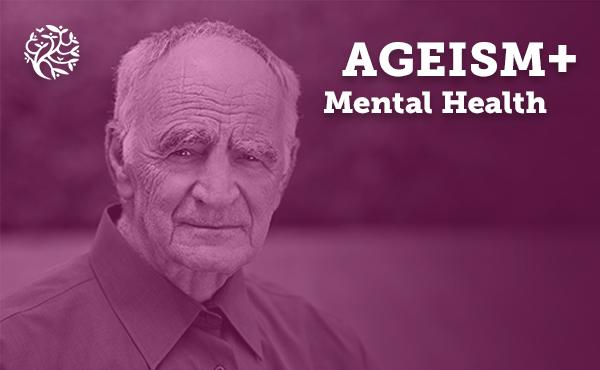I feel less alone. We're meeting each other for coffee outside of the workshops. I've made friends for life.
75-year-old Kusnum's words reflect a repeated theme from our work with older people: they find themselves socially isolated and suffer from a range of related mental health issues. Symptoms vary of course, but low mood and anxiety seem to lead the way. If there's a core finding from our work therefore, it’s that older people crave meaningful connection.
Our experience is that age brings its own barriers when it comes to getting creative. Already vulnerable seniors don't want to risk looking 'silly'. At 64 Million Artists we believe that everyone is creative and wherever we run workshops: in care homes, community centres, schools or prisons, our aim is to break down people's blocks to their innate artistry.
A pernicious resistance
The refrains, though, are familiar. "I'm just not creative. I can't draw. You can't teach an old dog new tricks." Whether we’re leading craft, reminiscence, poetry, drawing or basic IT skills, a pernicious resistance emerges. Our first job as facilitators is to demystify, cheerlead and make safe.
Because it’s precisely when we leave our comfort zones and are willing to be vulnerable that we find relationships deepen and meaningful connections are made. There's something about painting, drawing, writing or simply telling a story that opens ourselves up.
Different parts of us can be explored. With luck, we find ourselves listened to, understood and appreciated. In the bustle of modern life when everyone is 'time poor' and distracted by technology, having a decent conversation and being actively listened to has become a rare luxury.
Creativity in later life
Last year, we were funded by Nominet Trust and The Baring Foundation to investigate creativity in later life. In partnership with Leicester Ageing Together, we explored whether digital tools can help older people feel creative and connected. The aim was to create a website, dothinkshare.com, which hosted tools for everyone. Its resources needed to be accessible, simple and free. (Do check it out if you’re looking to personally kickstart your creativity or need inspiration to run a group.)
An army of artists?
Have we managed to inspire an army of senior citizens to get creative online? Not quite - though we do have a small number of dedicated digital enthusiasts. What we discovered though, is that volunteers, carers and befrienders (many of them themselves elderly) lack the resources to improve the time they spend with beneficiaries.
When we worked with Leicester’s Learning for the Fourth Age, for example, carers said they frequently lacked inspiration. "Sometimes you just run out of things to do." Clearly, the mental health of older people is greatly impacted by the quality of carers’ experiences networked around them.

Physical and mental wellbeing
Old age brings particular health concerns of course. Conditions like Parkinsons, the mean onset age for which is 60, are not only physically debilitating – they also impact on mental wellbeing. We often find ourselves working with groups affected by these subtly interconnected concerns.
In Derby, for instance, we partnered with the Parkinson's Support Group, an informal meeting of 15 Parkinson's warriors who come together each week in the Crown Hotel to take part in creative activities, share a cup of coffee and keep each other company. Again, the activities are the glue which gives the members a common focus.
They're more than this, though. They’re also a springboard for conversations that are empathic, nurturing and deeply caring. For 12 months, we provided the session plans that formed the content for these Derby meet-ups; it's a testament to the bondedness of that group that they now set their own agenda.
Reminiscence activities for dementia
Dementia in all its forms affects a large section of the older population we encounter. Everyday creativity is a great way for sufferers and those caring for them to have meaningful shared experiences. As well as cognitive impairment, dementia has a host of mental health knock-on effects. Stress, anxiety, depression and a battery of associated emotions put relationships under considerable strain.
Exploring sensory objects or taking part in reminiscence activities such as story-telling or role play have been demonstrated to take the pressure off sufferers from 'remembering' in the conventional sense.
We often hear that the experience of dementia can feel something like a prison. Simple creative activities can at least soften, or loosen, the bars.
Not a panacea, but clear benefits
At 64 Million Artists we’re unabashed creativity evangelists, but we don't pretend that drawing, cookery or craft are a panacea for old-age wellbeing. We do, however, witness first hand the benefit people experience from coming together to try new things, and the uplift in mood that mutually supportive interactions bring. As one of the Leicester participants put it: "When I do creative things it makes me feel more wanted."
Watch how 64 Million Artists & Leicester Ageing Together are encouraging creativity in later life
Christopher Rolls is a Project Manager at 64 Million Artists
Have you been affected by any of these issues?
If you have been affected by any of the issues described in this blog, or simply need someone to reach out to, you can call the Mind helpline for information and advice on 0300 123 3393 or text, 86463.
The views and opinions expressed in this article are those of the author and do not necessarily reflect the policy or position of Independent Age.
